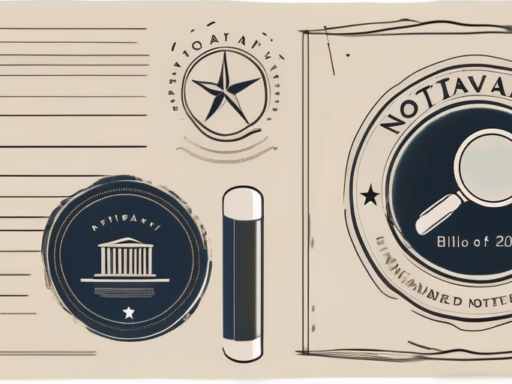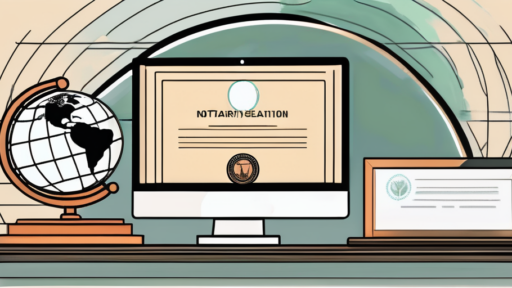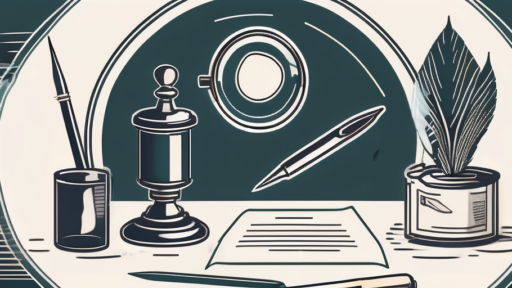Hello, ladies and gentlemen! We are so excited to provide you with the most accurate guide for understanding and having your affidavit notarized. Buckle up and be prepared to not just know but handle the difficult and challenging process of creating legal papers and their certification. The guide is so detailed that at the end of it, you could not just be a lawyer and notary public but also a home-maker of your curiosity about complex affidavits, in case you are not into these areas. The content that follows is tailored for you to be part of a panel of professionals that can resolve any affidavit matter.
Mastering the Art of Affidavit Preparation
Writing a convincing affidavit is anything but easy. It is indeed a very time-consuming task that calls for a lot of effort and dedication. Essentially, you have to pay serious attention to each aspect of the case that you are dealing with. There is no doubt that our team is more than capable of providing you with any kind of affidavit that may be required for corporate or personal use.
Step-by-Step Guide to Creating an Effective Affidavit
Define the purpose: You need to recognize the purpose (intention) of your statement so that you understand the idea and can write it in a clear way so that it is also understandable. The question then is: what is the purpose in terms of both the subject matter and the intention? This is the place where the court, the business, or a family problem will come into light for you. A well-sounded statement is not about the form but about the purpose, and this way, it will…
Get the data: The data that a statutory declaration represents are basically a strong collection of well-documented and confirmed facts concerning the event. This step is completely mandatory if each phase of study and inquiry is addressed with all seriousness and if the goal is not to lose any of the related material. One should keep in mind that the data put down during the affidavit preparation stage must be reliable. If not, it may entail…
Arrange and Construct: All the data must not only stick to one point but also be skillfully arranged and connected so that the whole concept will look clear and strong. The first step would be to come up with a rough copy from which you can extract the most important points and the strongest evidence to support your affidavit. To ensure that the affidavit flows smoothly and is understandable to anyone, what is the best way you can use? The writer could go ahead and use…
Use Short Language: Be concise to the point and straightforward in your speaking. Using complex terms or giving many detailed explanations may lead to misunderstandings or make the message less effective. Therefore, one must be clear and brief. A good combination of short and long sentences and a personal style will perhaps cater to judges, and would be useful in convincing the reporter of a case…
The Affidavit Affirms that the affidavit was made by the deponent, and it should contain a statement of avowal or oath in which the affiant attests to the information being true. This statement is a serious commitment that the affidavit outlines is the whole truth, and the person signing it is responsible for it. The addition of this affirmation or oath would lead to not only a more trustworthy but also a legally binding affidavit.
The subsequent item is to have the paper signed and notarized. Once the affidavit is completed, the next thing that you need to do is to sign it in front of a notary public. After your signature is verified by a notary, the paper is legal. Notarizing an affidavit is a step in creating an affidavit wherein it is ensured that the document is genuine and it can be used as evidence in a court of law. Based on where you are, it’s better if you check the notarization requirements again to ensure that you are not violating the law.
By knowing these steps, the affidavit can be made less vague and easier to understand. So, let’s talk about some ways in which the legal process can be made effortless and fast.
Streamlining the Legal Process for Efficiency
Dealing with legal issues will always remain a dull task; however, at least they can be resolved somehow according to the time schedule, and there are a few methods to do that task in a fun way for everyone. The text gives some hints on finding a way out and may turn the process into a pleasurable experience for the disputants.
Legal issues happen very quickly, and they should be solved in the shortest time possible. When a case, for instance, a civil lawsuit, a criminal case, or in general, any legal action, is time-bound, this is an example of how time management can be a factor. By following these hints, you can easily and quickly save your time and money and be more focused on achieving the best possible victory.
Tips for Expedited Legal Proceedings
1. Get advice from someone who is very knowledgeable: Contacting expert legal professionals is a good idea; they can convey important insights quite accurately and will also be able to suggest the most appropriate approach for your case. Through their legal practice know-how and subject knowledge, they can help you out through difficult stages and at the same time identify the problems that are unnecessary and solve them.
2. Be tidy: Well, you have to find a place for contracts, agreements, witness statements, and any further written materials that will carry your claim or the side of your respondent/government. If everything falls into the right place, it will thus need less time and effort to organize your information and to have the evidence available in the court for your case.
3. Clearly communicate: One of the things that you must always do is have regular conversations with your claims adjuster. The conversation then becomes a dialogue where there is no misunderstanding that anyone can later use for any reason, and all participants are involved from the very start to the end. By keeping the communication up and running, throughout the legal process, give an immediate response to mail, phone calls, and any other queries, to continue with the same.
4. Equip yourself for what may come: Firstly, be sure to think of all possible scenarios and have some resolutions in mind for each of them. This way, you will not be the one who is actually at fault for wasting time or delaying things, but it will be your lawyer who will be prudent and will act wisely. Through conducting a role-play envisioning a situation, in which things may go out of control, and proactively taking the necessary precautions, you can execute quickly and smoothly throughout the whole stage and progression.
5. Do not hesitate to consider other ways to settle the dispute: It’s quite possible that a traditional legal fight may not always be the fastest way to get some issues sorted out. Consider the alternative ways, like mediation or arbitration, because they are not only quicker but also less expensive. First, consult your lawyer to decide whether these methods are good for your case.
Following these plans will aid you greatly in your legal difficulties and cut down the resolving time significantly. To begin with, we’ll let’s talk about what notarization is and the meaning of notarization in the legal document authentication process.
To validate legal documents, the authority of a Notary plays a significant part by the process called notarization, and one person’s certification is mainly being done here. The notary public identifies himself and the signatory and, besides that, also functions as a neutral witness. A notarized copy of a document is not only recognized as reliable and authentic but also gives the document a higher level of legitimacy.
The legal document is notarized when the Notary Public identifies the person who will sign the paper and the fact that he/she is executing the document voluntarily and knowingly The notary also attests to the truth and correctness of the document content. The notary public, through all the above-mentioned steps and by affixing his/her official seal and signing the document, certifies that this is a genuine document.
Various legal transactions that involve real estate, wills, powers of attorney, and business agreements are among those that some of the documents need to be notarized. This generates proof that the signatures are real and gives the sales deed the legal standing.
Having a notarized document can simplify the whole process of doing the necessary legal works, for no further verification or authentication will be required. Thus, confidence is provided to the stakeholders, like the courts, government agencies, and so on, by all parties.
It must be clear to a person that such formalities as notarization may be different for each region and type of legal document. To get the full insight into the notarization requirements of legal documents, one must liaise with a lawyer in this particular branch.
Finding out the main reasons for the existence of notarial practice and as well being sure that your papers have been correctly notarized if the situation requires can be a beneficial step for legal purposes.
Understanding the Ins and Outs of Notarization
Notarization plays a crucial role in verifying the authenticity of legal documents, including notary affidavits. Notaries public act as trusted, impartial witnesses, ensuring the integrity and validity of the documents they notarize. Let’s dive deeper into the world of notaries and explore their essential role in the process of document authentication.
The Role of Notaries in Document Authentication
Notaries perform various vital tasks, including:
1. Confirming the Identity of Signatories: Notaries check the ID cards and other documents very carefully and with the use of the highest attention to confirm that the owners are the signatories who introduced themselves to the notary and they are not assisted by another person. This is the most important step in the notarization procedure – document signatory verification.
2. Administering Oaths and Affirmations: In addition to the above-mentioned duty, notaries still have to administer the solemn oath or affirmation to the declarants. The former is the one who swears that what he has said is true, while the latter is the one who tells us that without a doubt, they are honest in character.
3. Maintaining Official Records: Notaries are very thorough in the work they do to keep the records of all the notarial acts they have done. Their records serve as proof of the acts and provide a clear and authentic path from the time of signing the document to completion of the process of authentication.
4. Certifying Copies: Occasionally, a notary may exercise the right to produce and certify copies of the original documents that still exist and there is no change in fact. Thus, a further degree of credibility is added, and the documents acquire the character of individuality.
Furthermore, through the additional support they give notaries, they endeavor to make the approach of people who have their documents notarized the same and, thus, the documents will still hold their esteem and authorized character. Maybe you can further increase your knowledge by clicking on our website, and you can find this content under the heading of BlueNotary. The title may be the making of the online affidavit. Do you like the idea or not?
Online Notarization with BlueNotary for an Affidavit
Thanks to the arrival of new technology, notary services have also become technologically advanced. BlueNotary is a leading online notarization platform that provides you with the easiest and safest method to notarize your affidavit.
The good things that BlueNotary brought to the table are the following:
- Convenience: You will experience not only time-saving but also no more physical presence complications for an affidavit by notarizing through BlueNotary from your own home. Authenticate: At BlueNotary, with the use of advanced security technology, a document can be verified and identified while going through the online notarization process.
- Accessibility: Because most people get busier at work, BlueNotary serves them well as it is available 24/7, and a client may even ask for some notarization services no matter where he/she is at the time.
- Convenience: Through the use of the internet, you can make your document authentic and safe. The document can also be presented to the individual whose signatures will be notarized for verification purposes. So, it is convenient to use the internet to notarize your document.
- Efficiency: With BlueNotary online notarization, you save a lot of time as the process is straightforward and there is no requirement to physically go to a notary public. Once the document is in the system, the process will be completed within the shortest time possible.
Use of technology varies, and it is always recommended to think about it. Verify a few possibilities with BlueNotary and see what the future notarization experience is like. Be at peace, watching your affidavit being notarized securely gives it the respect it deserves.
Readers, there you have it — a step-by-step guide to the understanding of and receiving notary services for affidavits. With the knowledge imparted, you can be at the center of the affidavit preparation and quickly pass to the legal process and realize the importance of notary. This is no less than the actuality. The knowledge that you have gained is going to make you the master and the lawmaker of the affirmed and credible world. Go ahead, seize the powerful word of affidavits with your hands.








